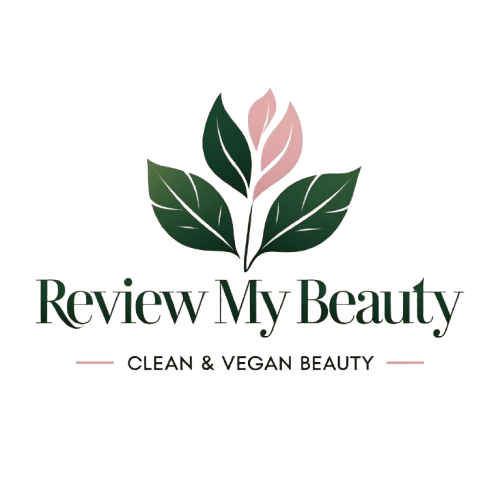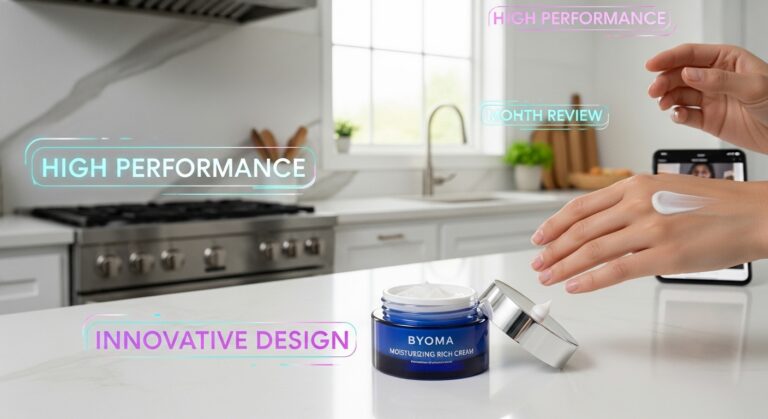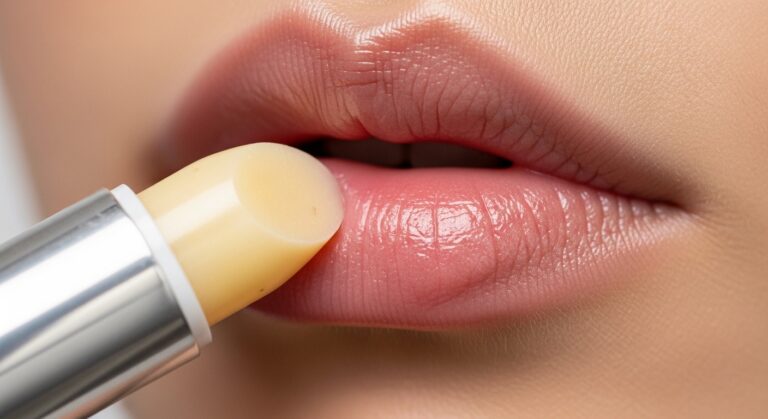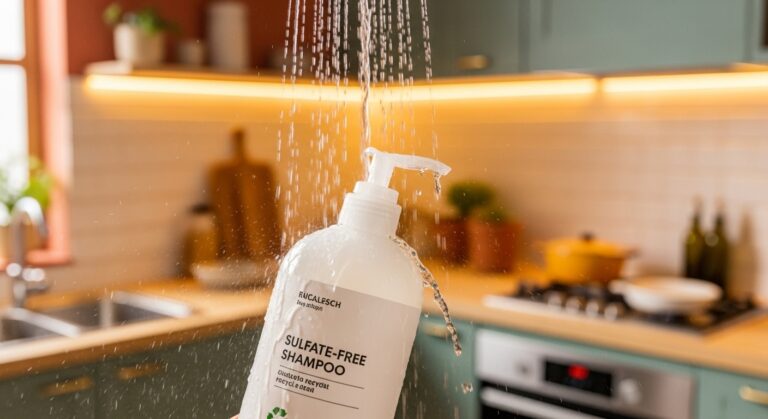Table of Contents
Introduction: Embracing Compassion and Glowing Skin
Moisturizing Cream stands as a cornerstone of ethical skincare, offering deep hydration without compromise. Opting for a vegan moisturizing cream means choosing products crafted from plant-based, mineral, or synthetic ingredients, ensuring no animal harm or testing. These formulations are rich in antioxidants and essential fatty acids, promoting skin elasticity and a radiant complexion. Embracing vegan skincare aligns your beauty routine with compassion for animals and respect for the planet, proving that effective skincare can be both kind and clean.
Vegan, Cruelty-Free, Natural, Organic: Untangling the Beauty Jargon
Navigating beauty labels can feel like decoding a secret language. Let’s clear up the confusion surrounding these often-misunderstood terms, crucial for finding the best moisturizing cream and other products:
- Vegan: This means the product contains zero animal-derived ingredients or by-products. Common non-vegan offenders include beeswax, honey, lanolin (sheep wool grease), carmine (crushed beetles), collagen (often animal-sourced), gelatin, and silk. Vegan beauty relies entirely on plant-based, mineral, or synthetic alternatives.
- Cruelty-Free: This specifically refers to animal testing. A cruelty-free brand does not test its finished products or ingredients on animals at any stage of development, nor do they commission third parties to do so. However, a cruelty-free product can still contain animal ingredients.
- Natural: This term is largely unregulated in beauty. It generally implies ingredients are derived from natural sources (plants, minerals, animals). But “natural” doesn’t guarantee safety, efficacy, vegan status, or cruelty-free practices. Poison ivy is natural, but you wouldn’t put it on your face! It also doesn’t rule out synthetic processing aids.
- Organic: Organic certification (like USDA Organic, COSMOS) focuses on how agricultural ingredients are grown – without synthetic pesticides, GMOs, etc. An organic product can still contain non-vegan ingredients (like organic beeswax) and may not be cruelty-free unless explicitly stated.
Key Takeaway: You can find products that are one, some, or all of these things. The gold standard for ethical beauty seekers is vegan AND cruelty-free. Always look for specific certifications or clear brand statements beyond vague marketing terms like “clean” or “green.”
How to Choose Truly Vegan & Cruelty-Free Beauty Products: Your Buyer’s Guide
Finding authentic vegan beauty products takes a little savvy. Here’s your roadmap:
- Scrutinize the Ingredients List: Become familiar with common animal-derived ingredients (beeswax, lanolin, carmine, squalene unless specified plant-derived, collagen unless vegan, keratin, silk, milk, honey). If you see them, it’s not vegan.
- Look for Reputable Certifications (Cruelty-Free): Trustworthy logos are your best friends:
- Leaping Bunny: The international gold standard. Rigorous independent monitoring of the entire supply chain. No animal testing at any point.
- PETA’s Beauty Without Bunnies (Cruelty-Free & Vegan options): PETA maintains global lists. Look for the “Cruelty-Free and Vegan” rabbit logo specifically for vegan products.
- Choose Cruelty Free (CCF – Australia): Another respected international certification.
- Look for Vegan Certifications: While less common for entire brands, some products carry vegan logos like The Vegan Society Trademark (the sunflower) or Vegan Action. These verify the absence of animal ingredients.
- Research the Brand: Don’t just trust the front label. Visit the brand’s website. Look for a dedicated “Vegan” or “Cruelty-Free” policy page with clear, unambiguous language. Beware of vague statements like “we don’t test” – this might only apply to finished products in certain regions.
- Beware of Parent Companies: This is a personal choice. Some certified cruelty-free brands are owned by larger parent companies that do test on animals where required by law (e.g., in mainland China). Brands like Leaping Bunny require the brand itself to be cruelty-free regardless of ownership. Purists may prefer entirely independent brands.
- Question “Greenwashing”: Be skeptical of buzzwords like “natural,” “eco-friendly,” or “clean” without concrete evidence (certifications, transparent ingredient lists, sustainability reports). Look for substance over vague marketing.
6 Ultra-Hydrating Vegan Moisturizing Creams You Need to Try
Ready to quench your skin’s thirst ethically? Here are six top-rated vegan moisturizing cream options available on Amazon, catering to different needs and budgets:
- Pacifica Beauty Vegan Ceramide Barrier Face Cream
- Why It’s Great: Packed with skin-identical ceramides and peptides, this cream focuses on repairing and strengthening the skin’s moisture barrier – essential for all skin types, especially dry or sensitive. Lightweight yet deeply nourishing.
- Key Vegan Ingredients: Ceramide Complex, Peptides, Hyaluronic Acid, Squalane (Plant-Derived).
- Price Range: $$ (Mid-Range)
- Benefits: Barrier repair, intense hydration, plumping, reduces sensitivity, smooths texture.
- Acure Radically Rejuvenating Whipped Night Cream
- Why It’s Great: A luxurious, rich whipped texture perfect for overnight rejuvenation. Features powerhouse plant stem cells (argan and chlorella) and bakuchiol (a natural retinol alternative) to target fine lines while delivering serious moisture.
- Key Vegan Ingredients: Bakuchiol, Argan Stem Cells, Chlorella Growth Factor, Squalane (Plant-Derived).
- Price Range: $$ (Mid-Range)
- Benefits: Overnight repair, anti-aging, deep hydration, improves elasticity, brightening.
- Derma E Vitamin C Intense Night Cream
- Why It’s Great: Combines the brightening power of stable Vitamin C with ultra-hydrating hyaluronic acid and nourishing oils for an overnight treatment. Wakes skin up looking refreshed, plump, and more even-toned.
- Key Vegan Ingredients: Stable Vitamin C (Ascorbyl Palmitate), Hyaluronic Acid, Jojoba Oil, Shea Butter.
- Price Range: $$ (Mid-Range)
- Benefits: Brightening, anti-aging, intense overnight hydration, improves skin texture and firmness.
- Elf Holy Hydration! Face Cream (Fragrance-Free)
- Why It’s Great: An incredible budget-friendly superstar! This dermatologist-developed cream features key hydrators and skin-replenishing ingredients often found in luxury brands. The fragrance-free version is ideal for sensitive skin.
- Key Vegan Ingredients: Hyaluronic Acid, Peptides, Niacinamide, Squalane (Plant-Derived), Allantoin.
- Price Range: $ (Budget-Friendly)
- Benefits: Deep hydration, plumping, strengthens barrier, soothes, brightens (thanks to niacinamide), fantastic value.
- Bliss Bright Idea Vitamin C + Tri-Peptide Collagen Protection & Brightening Moisturizer
- Why It’s Great: A potent daytime moisturizer focusing on brightening and protecting. Vitamin C combats dullness and free radicals, while plant-derived collagen alternatives and hydrators plump and smooth. Gives a healthy, radiant glow.
- Key Vegan Ingredients: Vitamin C (3-O-Ethyl Ascorbic Acid), Tri-Peptide Collagen Booster, Sodium Hyaluronate, Aloe Vera.
- Price Range: $$ (Mid-Range)
- Benefits: Brightening, antioxidant protection, hydration, improves skin tone and texture, lightweight feel.
- First Aid Beauty Ultra Repair Cream Intense Hydration
- Why It’s Great: A cult-favorite for a reason! This powerhouse cream is formulated for very dry, distressed skin (face & body). Its colloidal oatmeal base is incredibly soothing, while shea butter and ceramides deliver intense, long-lasting relief.
- Key Vegan Ingredients: Colloidal Oatmeal, Shea Butter, Ceramides, Allantoin.
- Price Range: $$$ (Premium)
- Benefits: Intense hydration for very dry/sensitive skin, soothes irritation (eczema-prone), repairs barrier, non-greasy absorption. Always confirm the specific batch is vegan, though their standard formula typically is.
Beyond Compassion: The Environmental & Health Perks of Vegan Beauty
Choosing vegan skincare and cruelty-free cosmetics isn’t just kinder to animals; it often benefits the planet and your well-being too:
- Reduced Environmental Burden: Animal agriculture is a leading cause of deforestation, water pollution, and greenhouse gas emissions. Opting for plant-based ingredients generally has a significantly lower environmental footprint. Producing plant oils and butters typically requires less land, water, and energy than raising livestock for their by-products.
- Fewer Harsh Chemicals (Often): While not automatically “natural,” vegan formulations often prioritize plant-derived actives and may avoid certain synthetic chemicals common in traditional beauty (though synthetics aren’t inherently bad – many are safe and effective). This can be gentler on sensitive skin. Crucially, vegan brands also avoid toxic chemicals used in animal testing.
- Sustainable Sourcing Potential: Many ethical vegan brands place a strong emphasis on sustainably sourced, organic, and fair-trade botanicals, further reducing environmental impact and supporting responsible farming communities. Look for brands transparent about their sourcing.
- Innovation: The demand for vegan beauty products drives innovation in plant-based biotechnology, leading to highly effective, cutting-edge ingredients like bio-fermented actives and lab-grown skin-identical compounds.
Vegan Beauty FAQ: Your Burning Questions Answered
- Q: Are vegan products suitable for sensitive skin?
- A: Often, yes! Vegan formulas frequently avoid common irritants like lanolin or certain animal proteins. Many prioritize soothing plant ingredients like aloe, oatmeal, and calendula. However, always patch test, as any product (vegan or not) can contain potential allergens (like essential oils or specific botanicals). Look for fragrance-free options if you’re highly sensitive.
- Q: Does vegan makeup last as long as traditional makeup?
- A: Absolutely! The performance gap has closed dramatically. High-quality vegan makeup uses advanced plant waxes (like candelilla or carnauba), mineral pigments, and innovative binders to offer excellent longevity, pigmentation, and wear time comparable to non-vegan counterparts. Look for brands known for performance.
- Q: Are vegan beauty options available at affordable prices?
- A: Yes! The vegan beauty market spans all price points. Brands like e.l.f., Pacifica, Acure, and The Ordinary offer fantastic, high-performing vegan moisturizing cream and other products at drugstore prices. Mid-range (Derma E, Bliss) and luxury (Herbivore, Biossance) options are also plentiful. You don’t need to break the bank to be ethical.
- Q: Are vegan products less effective?
- A: This is a common myth. Modern vegan skincare leverages potent plant actives (vitamins, antioxidants, fatty acids), advanced ferments, and scientifically proven synthetics. Many vegan brands are at the forefront of cosmetic science, delivering clinically proven results for hydration, anti-aging, acne, and more. Effectiveness depends on formulation, not the absence of animal ingredients.
Conclusion: Hydrate Ethically, Glow Consciously
Your journey to finding the perfect moisturizing cream – one that deeply hydrates and aligns with your values – is easier and more rewarding than ever. We’ve explored the clear distinctions between vegan, cruelty-free, natural, and organic, armed you with a practical buyer’s guide, highlighted six stellar ultra-hydrating vegan solutions, and discussed the compelling environmental and health benefits.
Choosing vegan beauty products and cruelty-free cosmetics is a powerful, positive choice. It’s a vote for compassion, a step towards a more sustainable planet, and an investment in high-performance skincare powered by ethical innovation. Your skin deserves the best, and so do the animals and environment we share this world with.
Ready to make the switch? Start by exploring one of the amazing vegan moisturizing cream options above, or research other certified brands that resonate with you. Every conscious purchase makes a difference. Share your favorite vegan beauty finds and experiences in the comments below – let’s build a community of conscious beauty lovers, one radiant, ethical glow at a time!
Author’s Top Picks :




